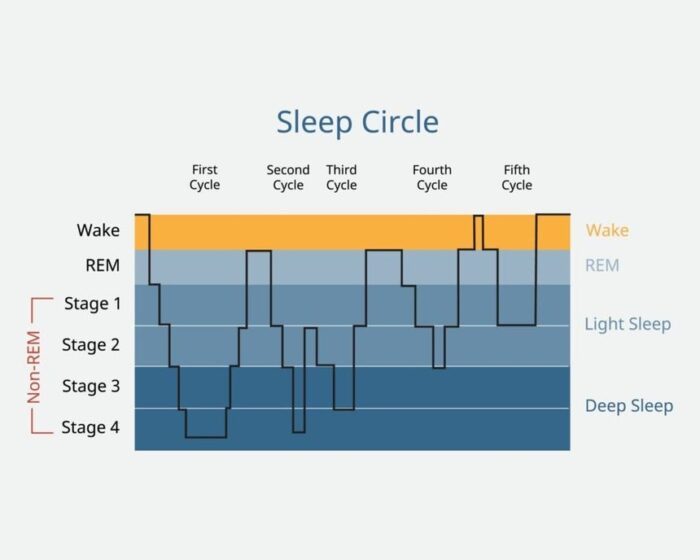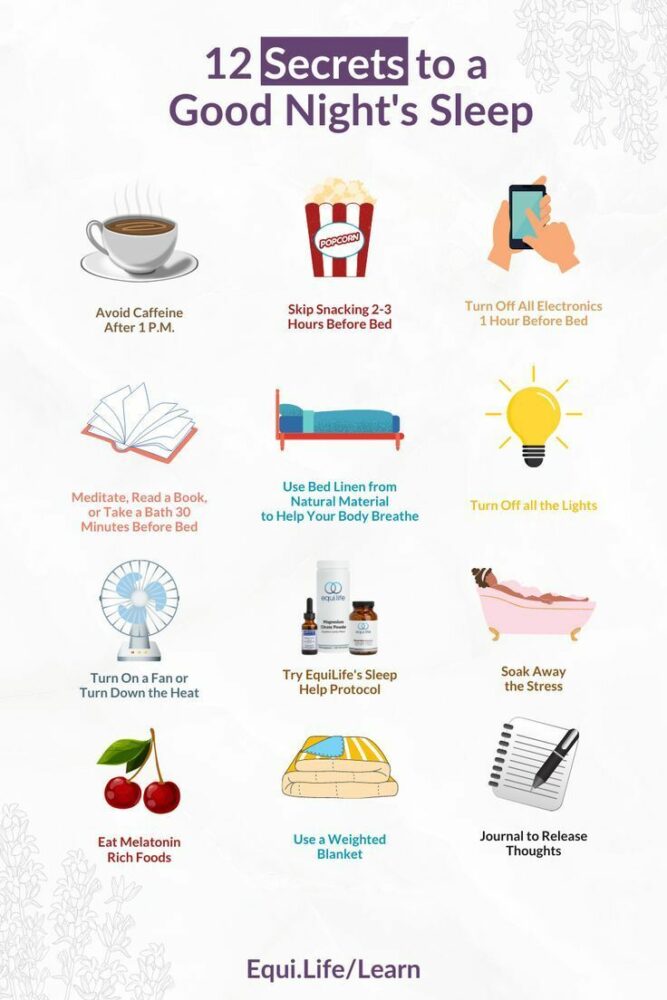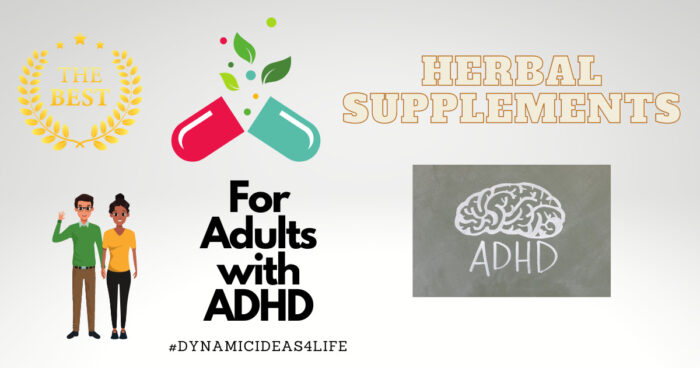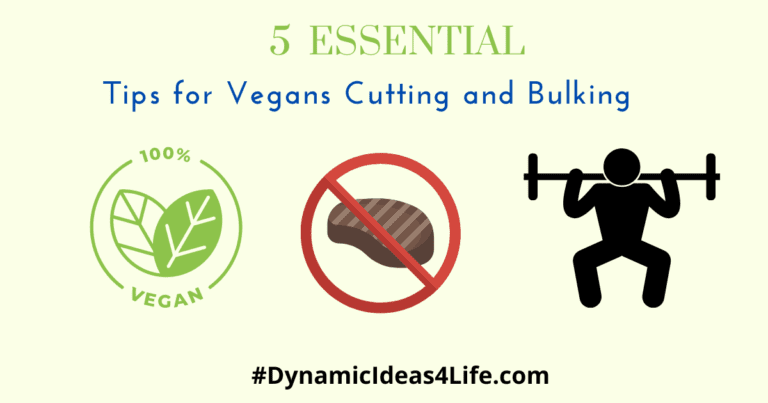

The Human Growth Hormone (known as HGH for short) is an Important chemical (hormone) that is released by the endocrine system. It is produced by the anterior lobe of the pineal gland and what it does is pretty Incredible.
We need HGH as it helps us grow when were children, maintain correct bodily function as adults and it also is responsible for metabolism in both children and adults.
In this post we shall explore HGH and Weight Loss as an area of this. Primarily how the role of sleep and the release of HGH can be beneficial to obese and overweight Individuals.
I become Interested in this topic a few years back. Mostly to do with how getting the right kind of sleep, to trigger the release of HGH was linked to many different health benefits such as fat loss and anti-ageing.
Growing up I was always told about how important sleep is but I must admit that until researching this I never really understood quite why this was.
But now as an adult myself, of almost 40 years of age, it is clear to me how hormones like HGH affect the physical wellbeing of myself and others.
If I have NOT slept well I know that this is one, if not the main reason I need rest. Sleep hacking or Sleep management is a HUGE part of fine tuning a good healthy living and wellness routine and for weight loss it’s sensible to investigate this.
*Note my original inspiration for this topic was a supplement I reviewed back in 2020 called Resurge (check out my review for this HERE). I am not looking to promote this product in this post but its website makes some pretty Interesting claims about both HGH and Weight Loss.
Find out more about this in the article below. Now…
HGH and Weight Loss – The Human Growth Hormone Investigated!
SO to begin with, (I think) the concept behind HGH (the human growth hormone) being able to help with weight loss is a strange one. It makes sense to me knowing what I do but if you are 350 lbs (or more) it seems odd to say you can lose some of this weight by sleeping better rather than with exercise.
Although, there is definitely some truth to this and one reason I think is good to highlight is that a good nights sleep can surely help make you feel happier. The stress hormone cortisol for one can be detrimental to our mood. In excess it can affect the leptin/ghrelin cycle and our blood sugar. All factors that play a part in effective weight management.
Now, It is not only this, but the whole idea of stress causing people to get fat is a factor of this. The metabolism of white fat is another, and so is the release of energy. I’m sure I’ll get back to all this.
HOWEVER, what the big talking point is here is getting the RIGHT SLEEP (Deep Sleep / REM Sleep). Something that occurs over a course of 4-6 stages. THIS is pretty fascinating…

This is a cornerstone of how our human body works – this is very important to understand.
Deep Sleep, HGH and Weight Loss
As mentioned above there are 4-5 defined stages of sleep. The first 2 stages are called NREM sleep. Light sleep with NREM meaning non-rapid eye movement. Around 50% of time spent sleeping is said to be during these 2 stages of NREM with each one lasting around an hour and a half each.
Stages 3 & 4 are called Slow Wave Sleep or SWS and this is somewhere in the middle of both light and deep sleep. It is actually when around half of the human body’s HGH production occurs. This itself is important for our health but more so –
This is followed by the final sleeping phase REM Sleep – short for ‘Rapid Eye Movement! ‘
In hindsight, each sleep cycle plays its part in different aspects of recovery, and maintenance of our biological systems.
Processes such as cell regeneration and the regulation of hormones are vital to our survival, and deep sleep is right at the core of this.
The effects of cortisol I said about above. We need cortisol as it wakes us up among other things but in excess too much can cause hormonal imbalance.
Leptin resistance is one such problem that factors into this. Leptin is our appetite hormone – when we have leptin resistance our appetite becomes out of control and this may mean we eat too much.
Ghrelin is the hunger hormone. Whilst this is not a primary driver here its relationship with leptin may lead to increased hunger and decreased satiety.
There is also insulin which factors in because it is responsible for fat storage in adipose tissue.
Then you also have thyroid hormones and the sex hormones too but getting to the point.
The reason HGH can help with weight loss is because it is essential for the correct regulation of hormones (hormonal balance) which is key to pretty much everything related to putting on weight and losing it.
*I mean I think by now this pretty clear what the point of this article is but let’s now take a look at HGH as a fundamental part of this.
What is the Human Growth Hormone (HGH)

Human Growth Hormone, commonly abbreviated as HGH, is a peptide hormone produced by the pituitary gland, a small gland located at the base of the brain.
As the name suggests, HGH plays a crucial role in growth and development, particularly during childhood and adolescence. However, its impact extends well beyond these early years.
The Role of HGH in the Body
HGH is essential for several key functions in the body:
- Growth and Development: In children and adolescents, HGH stimulates growth by promoting the synthesis of proteins and the growth of tissues and organs. It helps in the elongation of bones, contributing to overall height during the growth spurts of puberty.
- Metabolism Regulation: HGH influences how the body uses and stores energy. It helps regulate metabolism by stimulating the breakdown of fats and increasing the availability of glucose for energy. This effect is crucial for maintaining a healthy weight and energy levels.
- Muscle and Bone Health: In adults, HGH contributes to the maintenance and repair of muscle and bone tissues. It aids in muscle growth and strength, and supports bone density, which can help prevent conditions like osteoporosis.
- Cell Repair and Regeneration: HGH promotes cellular repair and regeneration, playing a role in the healing process and recovery from injuries. This regenerative capacity is one reason why HGH has been a topic of interest in various therapeutic contexts.
Production and Regulation
The secretion of HGH is regulated by the hypothalamus, which releases growth hormone-releasing hormone (GHRH) to stimulate the pituitary gland. Conversely, somatostatin, another hormone from the hypothalamus, inhibits HGH release. This balance ensures that HGH levels are adjusted according to the body’s needs.
HGH levels naturally fluctuate throughout life. They are highest during childhood and adolescence, decrease with age, and can be affected by factors such as stress, sleep, and exercise.
Medical Uses and Misconceptions
While HGH is vital for normal growth and metabolism, it has also garnered attention for its use in medicine. Synthetic HGH is prescribed for growth disorders in children and hormone deficiencies in adults. It is also sometimes used in treatments for certain conditions like chronic kidney disease and Turner syndrome.
However, HGH has been subject to misuse, particularly in sports and bodybuilding, due to its muscle-building and fat-reducing properties. This has led to ethical concerns and legal restrictions, as its non-medical use can have serious health consequences.
*I definitely do not recommend synthetic HGH for Weight Loss. You can try taking a supplement like Resurge if you struggle with sleep. Although, in my opinion there are alternatives that may be better.
But getting back to the main point now…
How Can You Use HGH To Lose Weight?
Firstly, AGAIN synthetic HGH supplements are a big NO. There is no quick simple fix like this – You probably would struggle to find these anyway but yes forget about them – here is what I suggest instead.
WE as human beings produce HGH we don’t need to take a pill to put it inside of us. Only we need to cater for the conditions that we need for our body’s to produce it naturally.
So getting deep, regenerative sleep is how we do this – of course this part is clear but typically there is a larger problem NOT BEING ABLE TO SLEEP PROPERLY.
What Can We Do To Sleep Better and produce more HGH

One idea that I have never tried that I really like the thought of is using something like The SleepWatch app to get a good idea of what your sleep patterns are actually like.
You don’t have to do this but I think many will not release that there is any issue with their sleep. Maybe it could be you are waking up and going back to sleep but still getting 8 hours.
This can be a problem as you are not cycling through to deep sleep. It certainly is a matter of quality over quantity here.
I would say the 3 most import things are changing your lifestyle, your diet and your sleep environment. Also what time you go to bed. But further to this give up alcohol, give up smoking, don’t eat before bed time, get the right nutrients you need such as magnesium, zinc and b vitamins and make sure your comfortable in a clean bed with minimal noise distractions.
In terms of supplements I think a good Magnesium supplement can really help. Magnesium helps with the production of melatonin and this is a HUGE deal here MELATONIN PRODUCTION.
I would recommend a supplement by Nootopia and Bioptimizers called Dream Optimzer for this. It works by giving the body a microdose of synthetic melatonin that triggers its natural production – you should be very wary of melatonin supplements as you can disrupt natural production with most of them that you actually overdose on in most cases.
You can read more about this in my article HERE but anyway something else to try our supplements with ingredients such as lemon balm and chamomile that have a calming affect on the nervous system – these too can be great for restful sleep.
My 2nd recommendation for those in that situation would be BrainMD Restful Sleep – this is in our opinion a brand you can trust and has a lot of very positive reviews.
I will let you make up your own mind there but on a final note.
In Conclusion
If you are someone that struggles with their weight then I’m sure that you will be keen to explore whichever options you can to help with this. Perhaps exercise and diet have not been the solution you have been looking for – for many this is the reality.
Exploring the idea of HGH for Weight Loss may not be the ideal solution you have been searching for but all I would say is if you also have sleep problems as well as weight issues then why not try to resolve your problems with sleeping?
See what actually getting to the point of sleeping all through the night does in regards to how you feel during the day and see what this does alongside light exercise, better nutrition and lifestyle changes.
I certainly would recommend this. Do what is necessary to get a good nights sleep and see if you can get a few weeks like this. See if this actually helps – I shall finish this article up here but I hope this has been helpful.
HGH and Weight Loss FAQ
Human Growth Hormone (HGH) has been studied for its effects on fat loss, but its effectiveness and safety are subjects of ongoing debate. However, these are the main things to note;
1.) Mechanism: HGH can increase metabolic rate and promote lipolysis (the breakdown of fat) by enhancing the activity of lipolytic enzymes. It also has anabolic effects that can help preserve muscle mass, which in turn can contribute to a higher resting metabolic rate.
2.) Research Findings: Studies have shown mixed results. Some research suggests that HGH can help reduce body fat, particularly in abdominal areas, and increase lean body mass. However, other studies have found minimal or no significant effects on fat loss when HGH is used alone, particularly in people who are not deficient in the hormone.
3.) Dosage and Duration: Effective fat loss results are often associated with specific dosages and treatment durations. However, using HGH for fat loss often requires higher doses and longer durations than what is typically recommended or approved for medical use, raising concerns about safety and side effects.
4.) Side Effects: HGH use can lead to several side effects, including joint pain, carpal tunnel syndrome, insulin resistance, and increased risk of diabetes. Long-term use may also have other health risks, including potential effects on heart health and cancer risk.
5.) Legality and Regulation: In many countries, HGH is classified as a controlled substance and is illegal to use for non-medical purposes, such as cosmetic fat loss. It is approved for specific medical conditions, such as growth hormone deficiency or certain types of short stature in children, but using it outside these indications can be illegal and unsafe.
6.) Alternative Approaches: For most people, a combination of a balanced diet, regular exercise, and healthy lifestyle choices is a safer and more effective approach to fat loss than HGH. There are also other medical treatments and interventions that are more established and safer for weight management.
The timeline for HGH (Human Growth Hormone) to show noticeable effects can vary based on several factors, including the purpose of use, dosage, and individual response.
Initial effects may take a few weeks, fat loss and muscle gain can take a few months to see noticeable changes.
Human Growth Hormone (HGH) has been studied for its effects on body fat, including visceral fat—the fat stored around internal organs such as the liver, pancreas, and intestines.
Research Findings have indicated that HGH treatment can lead to reductions in visceral fat. For instance, research on HGH therapy in older adults and those with HGH deficiencies has shown that it can decrease abdominal fat, which includes visceral fat.
However, the effectiveness of HGH in reducing visceral fat can vary. Some studies report significant reductions, while others show modest or no substantial changes.
Yet, it is known that HGH promotes lipolysis (fat breakdown) and increases metabolic rate, which can help reduce overall fat, including visceral fat.
Human Growth Hormone (HGH) affects several organs and tissues throughout the body due to its broad physiological role.
These Include;
1.) The Liver: HGH stimulates the liver to produce insulin-like growth factor 1 (IGF-1), which is crucial for growth and development. IGF-1 has anabolic effects, promoting cell growth and division.
2.) The Muscles: HGH promotes muscle growth by increasing protein synthesis and enhancing amino acid uptake in muscle cells. This helps in muscle repair and regeneration, making HGH beneficial for muscle mass maintenance and development.
3.) Fat Tissue: HGH stimulates the breakdown of fat (lipolysis) and reduces fat accumulation, particularly visceral fat. It enhances the mobilization of fatty acids from fat stores and increases their oxidation.
4.) Bones: HGH plays a critical role in bone growth and maintenance by stimulating the production of IGF-1 in bone tissues. This supports bone density and growth, particularly during childhood and adolescence.
In adults, HGH helps maintain bone density.
5.) Kidneys: HGH influences fluid and electrolyte balance in the body. It can affect kidney function, including the regulation of blood pressure and fluid retention.
6.) Heart: HGH affects cardiac function and vascular health. While it can have beneficial effects, such as improving heart muscle strength, inappropriate use or excessive levels can contribute to cardiovascular issues.
7.) Skin: HGH can stimulate collagen production, which impacts skin elasticity and thickness. This contributes to the maintenance of skin health and appearance.
Human Growth Hormone (HGH) has a significant impact on metabolism, affecting various metabolic processes in the body. Here’s a detailed look at how HGH influences metabolism:
Fat Metabolism:
Lipolysis: HGH promotes the breakdown of stored fat (lipolysis) by stimulating the release of fatty acids from fat cells. This process helps reduce fat accumulation, particularly in areas like the abdominal region.
Fat Utilization:
Increased lipolysis leads to enhanced utilization of fatty acids for energy, which can help in reducing body fat over time.
Carbohydrate Metabolism:
HGH can influence insulin sensitivity and glucose metabolism. It can increase insulin resistance, meaning that cells become less responsive to insulin, which may lead to higher blood sugar levels.
Gluconeogenesis:
HGH stimulates the liver to produce glucose through gluconeogenesis, especially in fasting or low-carb states. This helps ensure a steady supply of glucose for energy.
Protein Metabolism:
HGH enhances protein synthesis by increasing amino acid uptake into cells. This promotes muscle growth and repair, contributing to overall lean body mass.
Muscle Preservation:
By promoting protein synthesis and reducing protein breakdown, HGH helps preserve muscle mass, which in turn supports a higher resting metabolic rate.
Metabolic Rate:
By increasing muscle mass and promoting fat oxidation, HGH can contribute to a higher resting metabolic rate (RMR). This means that the body burns more calories at rest.
Overall Energy Balance:
HGH influences overall energy expenditure by affecting how the body uses fats and carbohydrates for energy. Increased fat oxidation and muscle mass contribute to greater overall energy expenditure.
Bone Metabolism:
HGH plays a role in bone metabolism by stimulating the production of insulin-like growth factor 1 (IGF-1) in bones. This supports bone growth and density, indirectly affecting overall energy metabolism.
Thermogenesis:
HGH can influence thermogenesis, the process of heat production in the body. This process contributes to energy expenditure and can be influenced by changes in metabolic rate and fat oxidation.
Scientific Research and Clinical Studies
- PubMed
- Increase of fat oxidation and weight loss in obese mice caused by chronic treatment with human growth hormone or a modified C-terminal fragment.
- Heffernan MA, Thorburn AW, Fam B, Summers R, Conway-Campbell B, Waters MJ, Ng FM.Int J Obes Relat Metab Disord. 2001 Oct;25(10):1442-9. doi: 10.1038/sj.ijo.0801740.PMID: 11673763
- OBJECTIVE: To observe the chronic effects of human growth hormone (hGH) and AOD9604 (a C-terminal fragment of hGH) on body weight, energy balance, and substrate oxidation rates in obese (ob/ob) and lean C57BL/6Jmice. …RESULTS: Both hGH and AOD signif …
- Google Scholar
- https://diabetesjournals.org/diabetes/article/20/2/83/3929/Metabolic-Effects-of-Weight-Loss-in-Obese-Subjects
- Journal of Clinical Endocrinology & Metabolism
- https://academic.oup.com/endo/article/142/12/5182/2988749?login=false
- Growth Hormone & IGF Research
- https://www.sciencedirect.com/journal/growth-hormone-and-igf-research
Books and Textbooks
- “The Growth Hormone Revolution” by Robert P. Heaney
- This book provides an overview of HGH, including its effects on body composition and metabolism.
- “Growth Hormone: The Road to Recovery” by Robert J. Heron
- A detailed book about the uses and effects of HGH, including its role in fat metabolism and weight management.
Medical and Health Websites
- Mayo Clinic
- Mayo Clinic – Human Growth Hormone provides an overview of HGH, its uses, and potential side effects.
- WebMD
- WebMD – Growth Hormone offers information on HGH, including its effects on metabolism and weight.
- National Institutes of Health (NIH)
- NIH – Human Growth Hormone provides research and information on HGH and its medical uses.
Clinical Guidelines and Consensus Statements
- American Association of Clinical Endocrinologists (AACE)
- AACE Guidelines often include information on hormonal treatments, including HGH.
- Endocrine Society
- Endocrine Society publishes guidelines and statements regarding hormone therapies and their impacts.
Expert Opinions and Reviews
- “HGH and Weight Loss: Fact or Fiction?” by Dr. Michael E. Moseley
- This article reviews the evidence around HGH for weight loss and provides insights from an expert in the field.
- “The Role of Growth Hormone in Weight Management” by Dr. Peter J. Snyder
- A review of how HGH influences weight and metabolism, authored by a noted endocrinologist.
Professional Organizations
- American Hormone Society
- American Hormone Society provides resources and research updates on hormone therapies, including HGH.
- International Society of Endocrinology (ISE)
- ISE offers information and research on endocrine disorders and hormone treatments.
These resources should provide a solid foundation for writing an informed and comprehensive article about HGH and its effects on weight loss.
Anxiety and Depression BiOptimizers blood pressure supplements blood sugar control blood sugar support supplements cognitive function digestive enzymes Digestive Enzymes Supplement digital products Dr Sam Robbins Gut Health Gut Health While Travelling Health Tips for Travelling Healthy Living heart health HFL how to lower blood sugar levels How To Lower Cholesterol insulin resistance joint health supplement Keto keto dieting Keto Diet Weight Loss leaky gut supplements leptin resistance Magnesium deficiency Matt Gallant mental health multivitamins Nootopia Nootropics Probiotics Probiotic Supplements reverse type 2 diabetes stress and anxiety stress relief Supplements vitabalance vitapost Wade Lightheart weight loss articles weight loss diet plans weight loss product reviews weight loss supplements weight loss tea




While reading the article, I felt so uneasy knowing that alteration of our hormone system beyond normal means has many possibilities and one of them is the alteration of the DNA which is the precursor of cancer problems. So, while reading the article, I was hoping that the author would suggest something that’s medically proven to not alter the normal system of the body leading to abnormal growth of cells. But then, thankful, that at the end of the article, the author diverted to a much better alternative which is Resurge which is a herbal and probiotic blend plus essential minerals like Magnesium and Zinc.
I’d like to try Resurge but since there is lockdown everywhere, can you suggest of a faster route to acquire these supplements wherein the ordered pack is delivered faster than what these couriers are processing theirs these days?
Yes, if you order through the Resurge website this is your best bet.
https://resurge.com/welcome/?h…